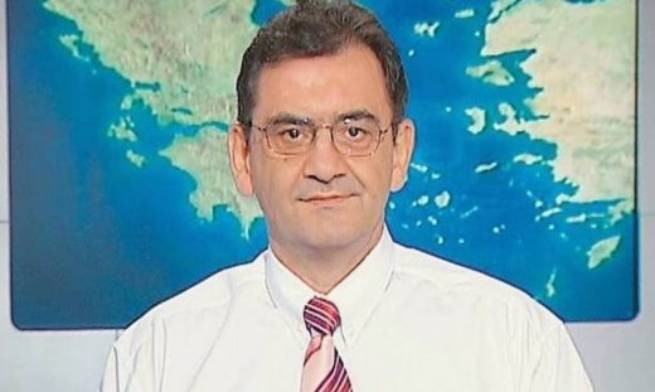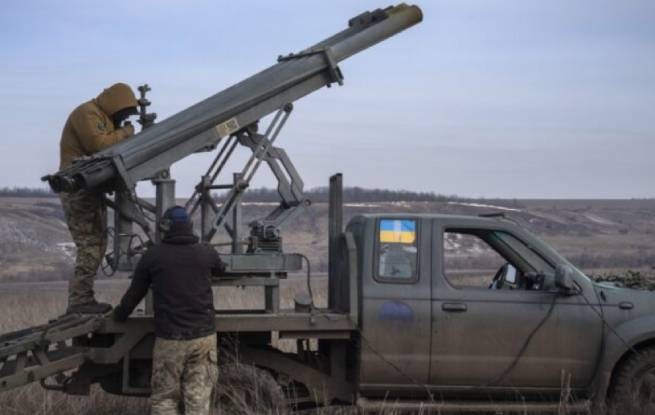Last year, a record was set for high air temperatures in a number of European countries. This summer, meteorologists warn, heat waves will repeat.
Europeans are again waiting for drought, crop failure of greens and fruits, rivers unsuitable for navigation and, alas, increased mortality – all that “accompanies” the cataclysm of high temperatures.
Water scarcity
The south of Europe suffers the most: many parts of Portugal, Italy, most of Spain. Already, like last year, the water level is dangerously low both in reservoirs and in the main water artery of Europe – the Rhine. The winter turned out to be little snowy, there was almost no rain, as in 2022. The volume of snow in the Alps is below historical norms, which will inevitably lead to drought.
Only May remained to mitigate the cataclysm. Although last year it became the driest on record. And this year, another record has already been set: February in France was the hottest since 1959.
Scientists note: “In recent decades, Europe has warmed faster than any other continent.” Alpine glaciers hold the lead in the rate of disappearance, the rate of their melting directly depends on the “lethargy” of snowfalls. Therefore, there is less and less water for navigation, irrigation, and electricity generation.
Abnormal April in Spain
In Spain, for the first time in history, the temperature rose to 38.7°C in April. Unusually hot weather for this time of year has settled in Andalusia and other southern provinces.
Temperatures reached almost 40°C this Thursday in some regions of Spain. At three o’clock in the afternoon in Cordoba it was 38.7°C, in Seville – 37.8°C. Spanish weather agency AEMET said this month is likely to be the hottest April since records began.
Heating Europe
Every year in Europe, the number of days when the continent experiences “strong” or “very strong” heat (according to the C3S classification) is steadily increasing. Almost all countries of the world subscribed to the conclusions that warming is a consequence of human activities and emissions of greenhouse gases into the atmosphere. They agreed to reduce emissions and recognized that even if they immediately stop “smoking the sky”, the gases accumulated in the atmosphere will not go anywhere and warming will continue, but the timeline for the inevitable apocalypse will move beyond the horizon. In the meantime, Europe is suffering in full measure from the consequences of abnormal heat:
Dry rivers create problems with the delivery of goods, slow down industry and trade, already undermined by the post-COVID crisis and the war in Ukraine.
The lack of moisture undermines agriculture and promises a rapid rise in prices in the face of inflation that has been record for 40 years.
Without water, the production of electricity at hydroelectric and nuclear power plants is reduced, as was the case last year in France, when the water level was insufficient to cool nuclear reactors.
Forest fires are a devastating consequence of dry and hot weather that threatens human life and health. They destroy houses, forests, fields, bridges, roads, reduce economic growth and increase greenhouse gas emissions into the atmosphere.
More than 15,000 people died last year due to heat waves in Spain, Germany, Britain, France and Portugal, according to a report released last Friday by the UN World Meteorological Organization.
Will this year be the “hottest summer” for Athens?
As the climate crisis and its consequences affect the entire Eastern Mediterranean region, considered a hotspot for the scientific community, forecasts for the upcoming summer are worrying experts. Given Athens’ record temperature of 44.8°C, how likely are we to see African temperatures in our country? Evaluating this possibility, disaster management professor Efthymios Lekkas believes that the most ominous predictions will be confirmed.
Meteorologist and director of research at the National Observatory of Athens Costas Lagouvardos believes that the “African” temperature of 48°C in Athens is unlikely to be recorded in the near future. He explains that such a temperature would be absolutely dangerous for human life, quotes CNN Greece:
“This is a completely extreme temperature that exceeds any scenario, since in Athens the maximum value recorded by us is 44.8 ° C. Temperatures of the order of 48 ° C are definitely dangerous for human life, especially if it lasts for a long time. We do not need to go far, to imagine the consequences: in 2007, we had wildfires with no wind due to a heat wave, and there were also deaths. These temperatures pose a threat to human life.”
However, Greece is located in the “red zone” of climate change, with a large increase in temperature in recent years – an average increase of 1.3°C. According to a recent AUTH study, the number of days with temperatures above 35°C will increase to 16 days per year in some regions of Greece by 2050, which, combined with negative rainfall, will seriously affect the main Greek crops – potatoes, wheat, tomatoes, grapes, olives.
Mr. Lagouvardos points out that since 2011, the temperature in Greece has annually exceeded the average of 14.2°C, and the records of 2017-2018 increased this figure to 15°C:
“There are two phenomena observed in our country: firstly, we have a strong rise in temperature. It is not the same everywhere, it ranges from 1°C to 1.5°C. In Athens, for example, it is about +1.5°C. Secondly, the annual amount of rain in total remains constant or even slightly increases, while the number of days with rain decreases. That is, we have fewer rainy days, and when it rains, there is a lot of it. Fewer rainy days very quickly means longer periods of drought and at the same time the risk of flooding and problems for agriculture.”
Efthymios Lekkas commented on the forecasts for the level at which the temperature will fluctuate this summer:
“Probably, we will have the hottest summer. Around the world, the outlook for next summer looks ominous. And this is underscored by the high temperatures that currently exist in Spain, France and other parts of the world. The Eastern Mediterranean is the most sensitive region to all these phenomena. All of this is part of what we call the climate crisis. The climate crisis means that temperatures are slowly and steadily rising due to human intervention, and this rise in temperature is creating huge problems. Not only in terms of fires, air pollution, biodiversity, all this, in fact, leads to desertification. The “Saharan picture” where there is no biodiversity and, above all, there is not enough water, but there is cleaning of the soil and, of course, forest fires.”
Regarding temperatures, Mr. Lekkas explained that there will be high temperatures, but at the same time there will be more intense events with a longer duration:
“We are concerned about the constant increase in temperature for ten to fifteen years. The overall picture must not escape us.”
When asked whether it is possible to take preventive measures, the professor replied:
“We can take both on an individual and collective level, and a culture needs to be created to take action, both as states, as individuals and as groups, that’s very important.”
Summer 2022 in Athens:







More Stories
Thodoris Kolidas explains the phenomenon "black sky" on Good Friday
Black swan in the Evros river delta
The weather will turn bad on Good Friday